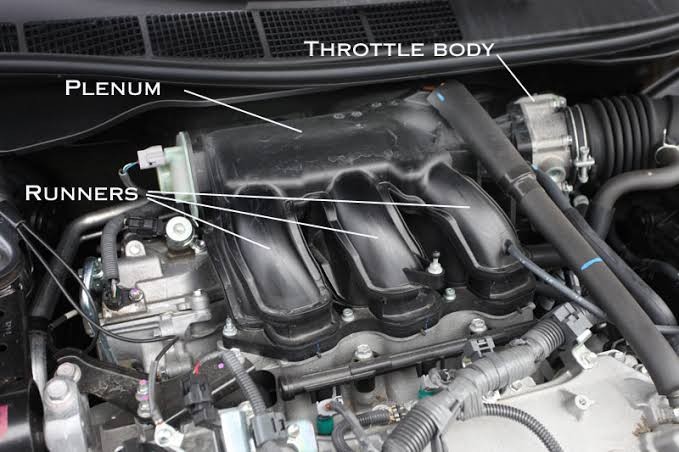A leaking intake manifold gasket is a common problem that can affect any car with an internal combustion engine.
The intake manifold is a part of the engine that distributes the air-fuel mixture to the cylinders. The intake manifold gasket is a seal that prevents the air-fuel mixture from leaking out of the manifold and into the engine bay. The intake manifold gasket also helps to keep the coolant and oil from mixing with the air-fuel mixture.
A leaking intake manifold gasket can cause various problems for your engine, depending on the type and severity of the leak. Some of the common symptoms of a leaking intake manifold gasket are:
- - Poor engine performance: A leaking intake manifold gasket can affect the air-fuel ratio of the engine, making it run too lean or too rich. This can result in reduced power output, uneven acceleration, rough idle, hesitation, stalling, backfiring, or misfiring. A leaking intake manifold gasket can also cause the engine to knock or ping, which is a noise that indicates premature ignition of the fuel-air mixture in the cylinders.
- - High or low engine temperature: A leaking intake manifold gasket can cause coolant to leak into the intake manifold or the cylinders, or air to leak into the cooling system. This can affect the engine temperature and cause it to overheat or run too cold. Overheating can damage the engine components and lead to costly repairs. Running too cold can reduce the fuel efficiency and increase the emissions of the engine.
- - White smoke from the exhaust: A leaking intake manifold gasket can cause coolant to enter the combustion chambers and burn with the fuel-air mixture. This can produce white smoke from the exhaust pipe, which is a sign of coolant loss and possible engine damage. White smoke from the exhaust can also indicate a blown head gasket, which is a more serious problem that requires immediate attention.
- -Oil or coolant leaks: A leaking intake manifold gasket can cause oil or coolant to leak from the engine bay. You may notice oil or coolant stains on the ground under your car, or see oil or coolant dripping from the engine. You may also notice a low oil or coolant level in your reservoirs, which can lead to engine damage if not replenished.
- - Check engine light: A leaking intake manifold gasket can trigger the check engine light on your dashboard, which indicates that there is a problem with your engine or emission system. The check engine light can be caused by many different issues, so you need to scan your car with an OBD-II reader to find out the exact code and reason for the light.
If you notice any of these symptoms, you should take your car to a mechanic as soon as possible to diagnose and fix the problem. A leaking intake manifold gasket can affect your engine performance, fuel economy, emissions, and reliability. It can also lead to more serious problems if left untreated.
The cost of replacing an intake manifold gasket depends on the make and model of your car, the type of gasket, and the labor involved. The average cost ranges from $200 to $600, but it can vary widely depending on your location and other factors.
To prevent a leaking intake manifold gasket, you should maintain your car regularly and follow the manufacturer's recommendations for oil changes, coolant flushes, and tune-ups. You should also avoid overheating your engine or driving it under extreme conditions. If you suspect a leak, you should check your oil and coolant levels frequently and look for signs of leaks under your hood or car.
A leaking intake manifold gasket is a common problem that can affect any car with an internal combustion engine. By knowing the symptoms and causes of this issue, you can take action before it causes more damage to your engine and wallet.

Comments (0)
Please login to join the discussion
Be the first to comment on this article!
Share your thoughts and start the discussion